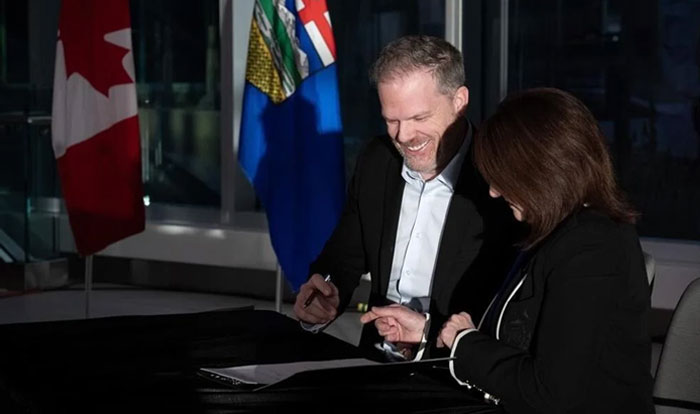
Canada's Minister of Health Mark Holland signs an agreement with Adriana LaGrange, minister of health for Alberta, in Calgary on Thursday, Dec. 21, 2023. THE CANADIAN PRESS/Todd Korol
The Alberta government has committed $200 million to support family doctors, ensuring their practices remain viable during the negotiation of a new funding agreement with physicians. Dr. Paul Parks, President of the Alberta Medical Association, emphasized the financial strain faced by family physicians, where the billing system hasn't kept pace with rising office and administration costs.
He said, ‘ This is stabilization money to keep those practices going’. The funding aims to stabilize these practices while discussions continue on a new funding model to replace the existing fee-for-service approach.
The criteria for distributing the $200 million over the next two years are still under development, with a focus on addressing the comprehensive care of patients, considering face-to-face time, preparation, and additional administrative responsibilities. Alberta's current base funding for family care physicians is projected to be almost $1.8 billion for the fiscal year. The $200 million supplement aligns with broader health system restructuring, emphasizing the importance of primary health care.
Health Minister Adriana LaGrange highlighted the province's commitment to establishing a primary care organization by the fall of 2024, coordinating primary healthcare services to ensure every Albertan is connected to a primary care provider. The funding announcement is part of a $1.06-billion, three-year agreement with the federal government. LaGrange noted that the funds would also contribute to reducing wait times for urgent care and expanding mental health and addiction services.
The funding agreement with Ottawa follows a national health accord presented by Prime Minister Justin Trudeau in February, aiming to address profound challenges in the healthcare system. Alberta's agreement makes it the third province, after British Columbia and Prince Edward Island, to reach a deal with the federal government.
The accord encourages provinces and territories to invest in digital medical records, health data collection, and meeting targets and timelines, with Quebec being the only province yet to agree to the accord, citing concerns over federal conditions.















